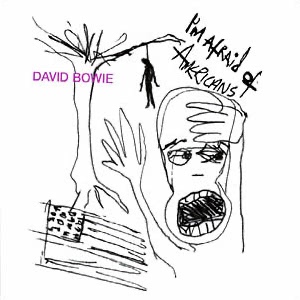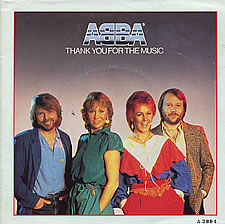
Guy Charles Clark was an American folk singer, musician, songwriter, recording artist, and performer. He released more than twenty albums, and his songs have been recorded by other artists including Jerry Jeff Walker, Jimmy Buffett, Lyle Lovett, Ricky Skaggs, Steve Wariner, and Rodney Crowell. He won the 2014 Grammy Award for Best Folk Album: My Favorite Picture of You.

"I'm Afraid of Americans" is a single by David Bowie from the 1997 album Earthling. The song, co-written by Bowie and Brian Eno, was originally written during Bowie's studio sessions for the 1995 album Outside but was not released until a rough mix appeared on the soundtrack to the film Showgirls, and was subsequently remade for Earthling. A top 20 hit in Canada, the rework also peaked at number 66 on the Billboard Hot 100 and spent 16 weeks on that chart. This was the final Bowie single which charted on the Hot 100 until "Blackstar" and "Lazarus" following his death.

"Lovesong" is a song originally recorded by the English alternative rock band The Cure, released as the third single from their eighth studio album Disintegration in 1989. The song saw considerable success in the United States, where it was a number two hit and the band's only top ten entry on the Billboard Hot 100; in the United Kingdom, the single charted at number 18.

"Waterloo" is the first single from the Swedish pop group ABBA's second album, Waterloo and their first under the Epic and Atlantic labels. This was also the first single to be credited to the group performing under the name ABBA.

"Master of Puppets" is a song by American heavy metal band Metallica, released in France only on July 2, 1986 as the only single from the band's 1986 studio album of the same name. It was also issued as a promo single in the US by Elektra Records.

"Who Wants to Live Forever" is a song by the British rock band Queen. It is the sixth track on the album A Kind of Magic, released in June 1986, and was written by lead guitarist Brian May for the soundtrack to the film Highlander. Queen was backed up by an orchestra, with orchestrations by the co-composer of the film's score, Michael Kamen. The song peaked at No. 24 in the UK charts.

"The Evil That Men Do" is a song by the English heavy metal band Iron Maiden. It is the band's seventeenth single and the second from their seventh studio album, Seventh Son of a Seventh Son (1988). The single debuted at number six in the UK charts and quickly rose to number five. The single's B-sides are re-recordings of "Prowler" and "Charlotte the Harlot" which appear as tracks number one and seven/eight respectively on the band's debut album Iron Maiden.

"Thank You for the Music" is a song by the Swedish pop group ABBA. It was originally featured on the group's fifth studio album The Album (1977), and was released as a single on 6 November 1983, to promote the Epic Records compilation album of the same name. The song "Our Last Summer", which was originally featured on the group's seventh studio album Super Trouper (1980), was the B-side. The song was simultaneously released in Ireland, and later released in France, with the same B-side but different artwork, and the Netherlands, with "Medley" as the B-side.

"Jolene" is a song written and performed by American country music artist Dolly Parton. It was released in October 1973 as the first single and title track from her album of the same name, produced by Bob Ferguson.

"Pink Spider" is the ninth single by Japanese musician hide, the second to bear the hide with Spread Beaver name, released on May 13, 1998, eleven days after his death. It debuted at number 1 on the Japanese Oricon weekly charts and was the 11th best-selling single of the year, being certified Million by the RIAJ. It was also named "Song of the Year" at the 13th Japan Gold Disc Awards.

"Hangar 18" is a song by American heavy metal band Megadeth from the 1990 album Rust in Peace. UFO conspiracy theories, or possibly Hangar 18, the 1980 film based on those theories, inspired drummer Nick Menza to write the lyrics. Shortly thereafter, frontman Dave Mustaine composed the bulk of the music. The intro is a rapidly strummed version of the D minor arpeggio that Mustaine wrote for the Metallica instrumental track "The Call of Ktulu", which was the final Metallica song for which he was given writing credit. Hangar 18 is located at Wright-Patterson Air Force Base near Dayton, Ohio, and it is speculated that an alien aircraft was brought there from Roswell in 1947. The song reached number #25 on the Irish Singles Chart, also reached number #26 on the UK Singles Chart.

Deca Loših Muzičara, often abbreviated to DLM, are a funk rock band from Belgrade. They were one of the most popular Serbian bands in the early 1990s. Most DLM songs are fast and furious funk rock, but melodic, adorned with trumpet and saxophone lines.

"Big River" is a song written and originally recorded by Johnny Cash. Released as a single by Sun Records in 1958, it went as high as #4 on the Billboard country music charts and stayed on the charts for 14 weeks.
"Fenomen" is the song by the Yugoslav new wave band Šarlo Akrobata, from the album Bistriji ili tuplji čovek biva kad..., released in 1981.
"O, O, O..." is a song by the Yugoslav new wave band Šarlo Akrobata, from the album Bistriji ili tuplji čovek biva kad..., released in 1981.

"Are You Sure Hank Done It This Way" is a song written and performed by American country music artist Waylon Jennings. It was released in August 1975 as the first single from the album Dreaming My Dreams. The song was Waylon Jennings' fourth number one on the country chart as a solo artist. The single stayed at number one for one week and spent a total of sixteen weeks on the country chart.
Nikola Pejaković is a Serbian actor and musician. After finishing Secondary Art School he entered the Art Faculty of Dramatic Arts in Belgrade, department of theater directing. Beside his acting career Pejaković is also a musician, playing the guitar, piano and harmonica. Since he was born without a little finger on his right hand, he is a four fingered guitarist, registered at the American Coalition for Disabled Musicians. He composed the ultimate kafana hit "Haljinica boje lila".



















